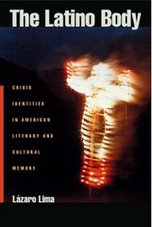Daniel Rubin: Arabic flash cards got him detained at airport
By Daniel Rubin
Inquirer Columnist
A federal agent sizing up Nick George might peg him as Most Likely To Be Recruited By The CIA. He's a physics major at a top college, he minors in Middle Eastern studies, speaks Arabic, has lived in Jordan and is adventurous enough to have backpacked through Sudan and Egypt.
At Philadelphia International Airport last August, his interest in the world got him handcuffed.
The Wyncote native was detained for five hours after Transportation Security Administration screeners grew suspicious about something in his pockets.
Arabic-language flash cards.
George, who was 21 at the time, and about to fly back for his senior year at Pomona College in Claremont, Ca., says he answered every question to the best of his abilities, and figured he'd be quickly sent on his way.
But what questions...
According to a federal suit filed Wednesday on his behalf by the American Civil Liberties Union, a TSA supervisor asked him, "How do you feel about 9/11?"
He said he hemmed and hawed a bit. "It's a complicated question," he told me by phone. "But I ended up saying, 'It was bad. I am against it.' "
He was asked if he knew who "did 9/11."
He answered, Osama bin Laden.
Then he was asked, "Do you know what language he spoke?"
George answered, Arabic."
The supervisor then held up his flash cards. "Do you see why these cards are suspicious?"
To George, they weren't suspicious at all. He was using them to translate Al Jazeera, whose coverage in Arabic he considers critical to understanding America's place in the world. The 200 cards included words for "terrorist" and "explosion," George said. His interest in the Middle East came not from 9/11 but from watching Lawrence of Arabia with his father, Paul George, a Philadelphia attorney and former public defender.
Nick George says he started taking classes in Middle Eastern history, politics and languages while at Pomona. He spent a semester in Amman. He has applied for a State Department program that encourages the study of Arabic and he has plans to take the Foreign Service exam after college.
He says he did the right thing when questioned.
"My mentality was, 'Do what they say, and pretty soon they'll see this is ridiculous and let you go," he said by phone. "That was my mentality until they put the handcuffs on me. Then it was surreal."
TSA called the Philadelphia Police, who marched him through the airport to a small office where he sat for more than an hour in cuffs, awaiting FBI agents.
In the suit he contends the agents asked him if he was an Islamist or a Communist. He said no. After about 20 minutes they released him. He missed his flight that day.
Neither the TSA nor the Philadelphia Police would comment yesterday, given that legal action was pending. But in a September Daily News column, TSA spokeswoman Ann Davis said behavioral-detection officers had selected the student for screening even before the flash cards were discovered. Those officers are trained to look for "involuntary physical and physiological reactions that people exhibit in response to a fear of being discovered," she said.
George says he cannot imagine what they mean - he was calm.
A police official, meanwhile, was quoted as saying it was George's ID in Arabic that caught their attention - from his Jordanian studies - and police were suspicious that the student's hair was shorter that day than it was in his Pennsylvania driver's license photo. "That," Lt. Louis Liberati said, is "an indication sometimes that somebody may have gone through a radicalization."
Candace Putter, George's mother, thinks that's an amazing statement. She is a longtime advocate for teens in trouble with the law. She said she came of age in the 1960s, when long hair was associated with a different sort of radicalism.
"You can't change the world on me that completely," she said, laughing.
Putter said said she understands in the post-9/11 world why security officers would pay attention to someone who had been to Muslim countries and was learning Arabic. So can Mary Catherine Roper, George's ACLU attorney. So can I.
"Clearly we want them to be paying attention," Cutter said. "But we want them to be paying smart attention."
Security technologist Bruce Schneier was less polite.
"This is just stupid," he said. "There's no other way to explain it. Someone saw these Arabic language cards and just freaked. It should have taken TSA 15 seconds."
The problem, he said, was that there is no cost to the security agent for doing the wrong thing. "If I detain someone and he's not a terrorist, nothing happens to me. I'm probably praised. If I let him go, and he is, my career is over. The TSA incentive is to overreact. Terrorism can't do this to us. I think only we can do this to ourselves."
Thursday, February 11, 2010
Subscribe to:
Comments (Atom)

